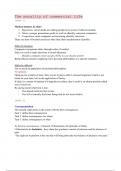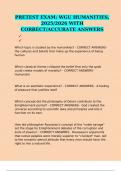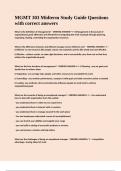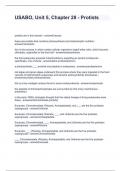Samenvatting
Morality of commercial life Lecture summary & MC questions
- Instelling
- Tilburg University (UVT)
This is a summary of all of the lectures taught for the Morality of Commercial Life given in the third year of the BSc International Business Administration at Tilburg University. It includes lectures and practice multiple choice questions with answers given in the lectures and Q&A sessions.
[Meer zien]













